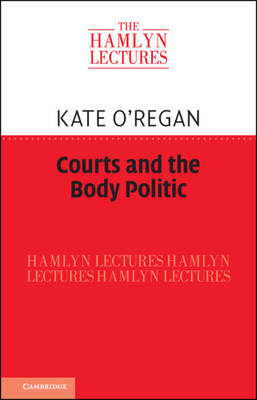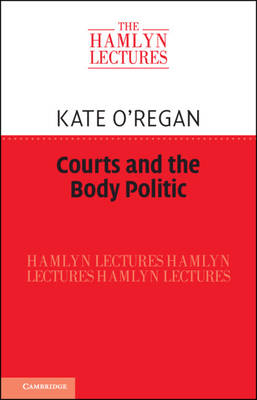
- Afhalen na 1 uur in een winkel met voorraad
- Gratis thuislevering in België vanaf € 30
- Ruim aanbod met 7 miljoen producten
- Afhalen na 1 uur in een winkel met voorraad
- Gratis thuislevering in België vanaf € 30
- Ruim aanbod met 7 miljoen producten
Zoeken
Omschrijving
Over the last half century, courts have come to play increasingly important roles in democracies. That role is studied by historians, political scientists, constitutional lawyers and political theorists, but it is also important to all who are concerned about the practice and future of democracy. This book explores why it is that courts are playing this expanded role, as well as exploring two of the most distinctive features of the role of courts: their relationship with the executive arm of government and the role of courts in protecting fundamental rights. The book argues that the role played by courts in modern democracies varies across time and place and depends on a range of factors including constitutional text, constitutional history, and legal and political culture. This book draws on Justice O'Regan's experience as one of the first judges on South Africa's Constitutional Court, which was established shortly after the transition to democracy in 1994.
Specificaties
Betrokkenen
- Auteur(s):
- Uitgeverij:
Inhoud
- Aantal bladzijden:
- 128
- Taal:
- Engels
- Reeks:
Eigenschappen
- Productcode (EAN):
- 9781009545792
- Verschijningsdatum:
- 14/08/2025
- Uitvoering:
- Hardcover
- Formaat:
- Genaaid
- Afmetingen:
- 140 mm x 216 mm
- Gewicht:
- 317 g

Alleen bij Standaard Boekhandel
+ 374 punten op je klantenkaart van Standaard Boekhandel
Beoordelingen
We publiceren alleen reviews die voldoen aan de voorwaarden voor reviews. Bekijk onze voorwaarden voor reviews.








